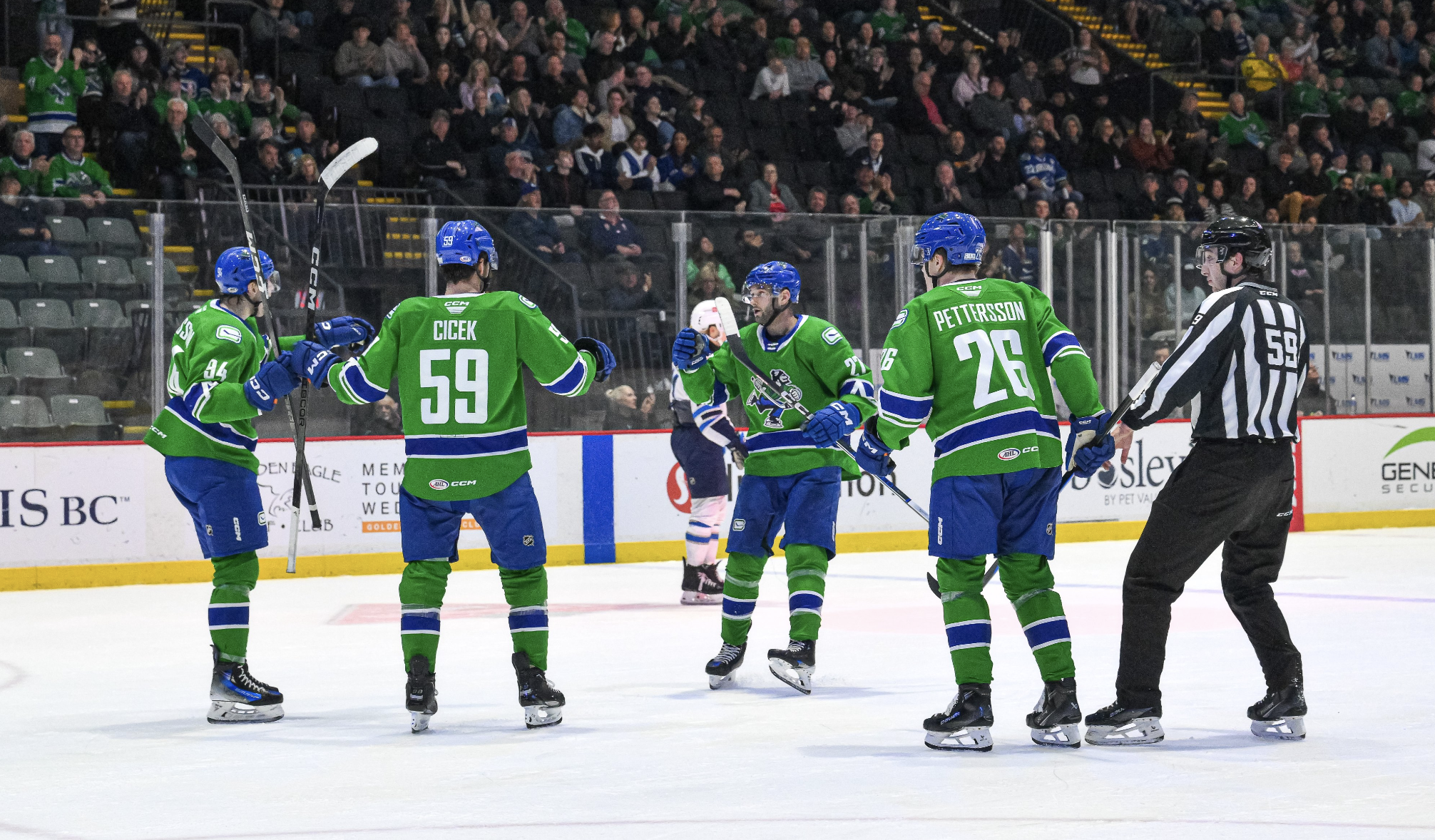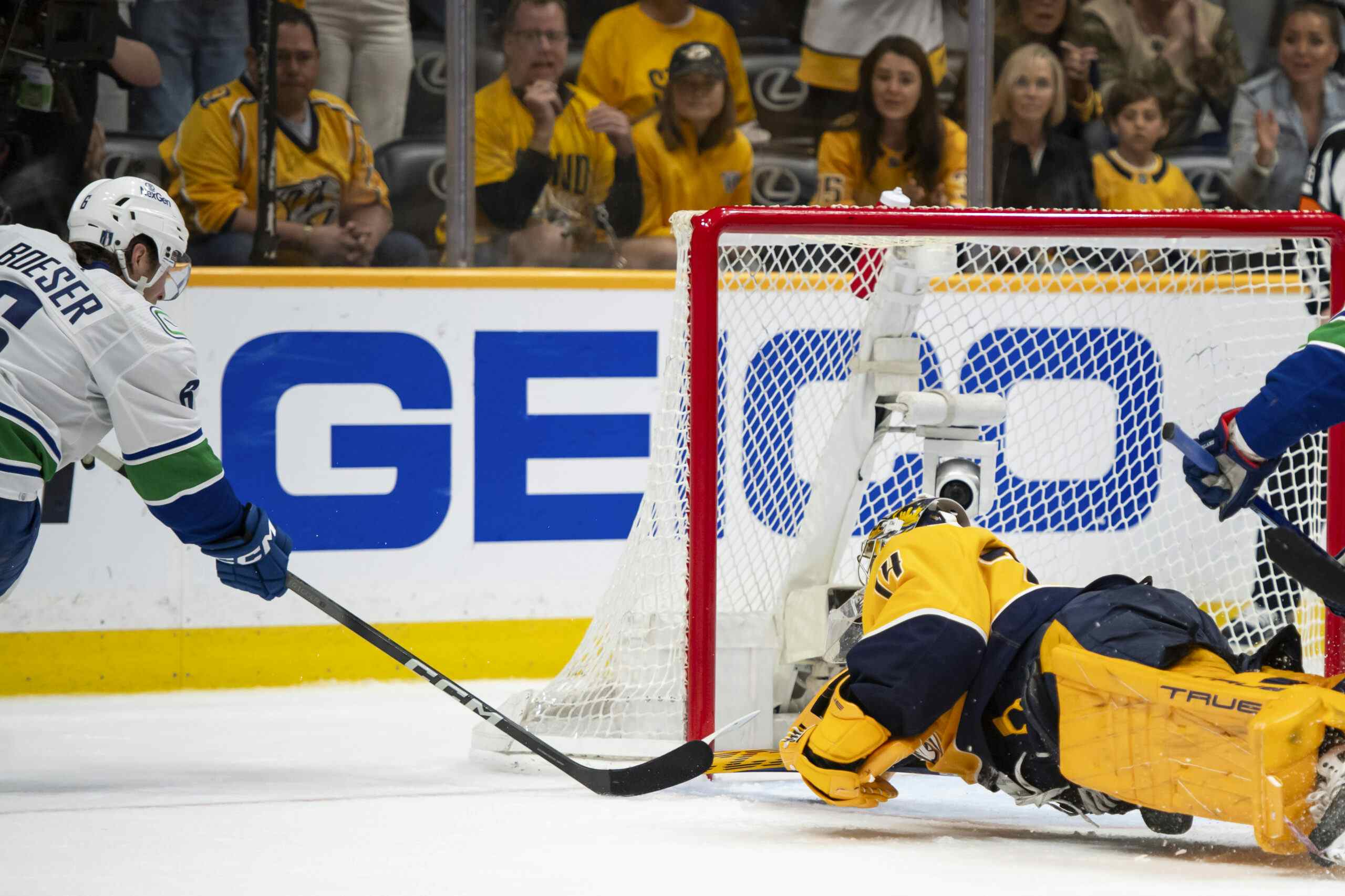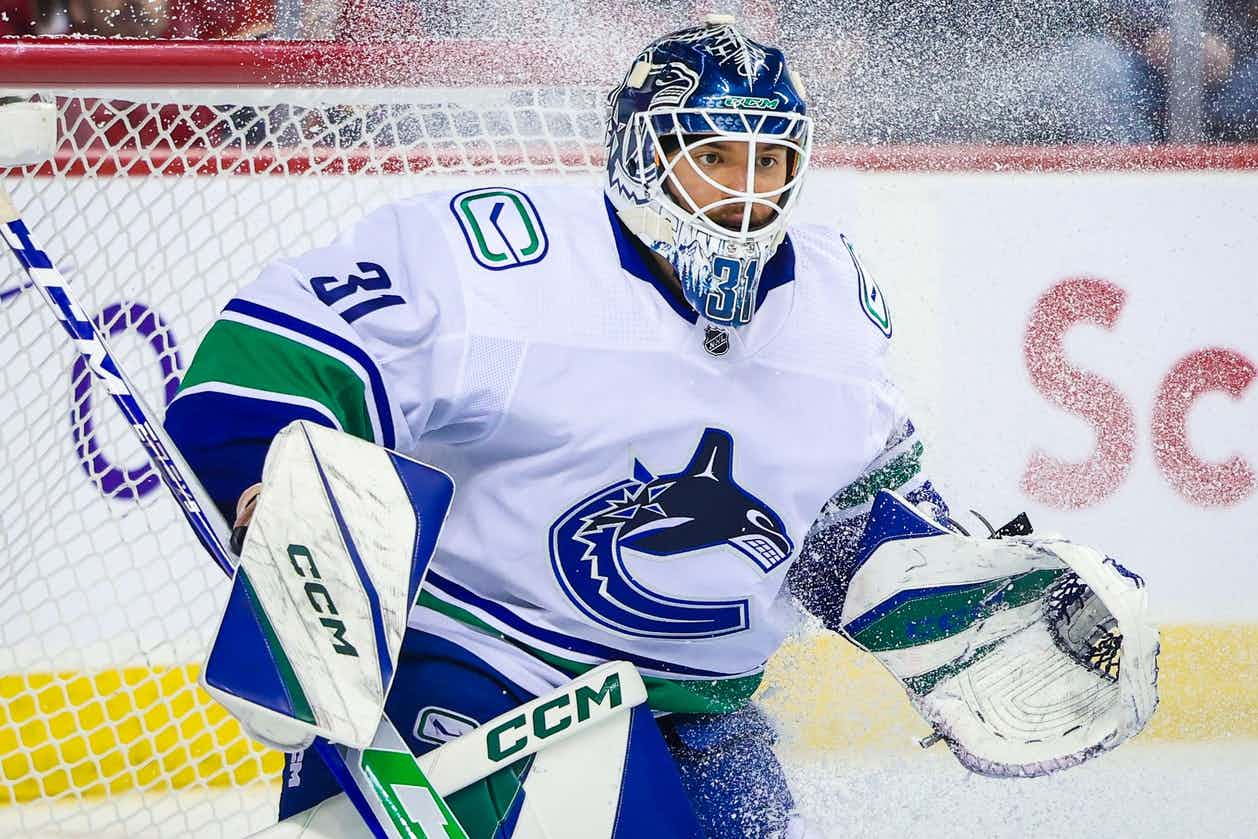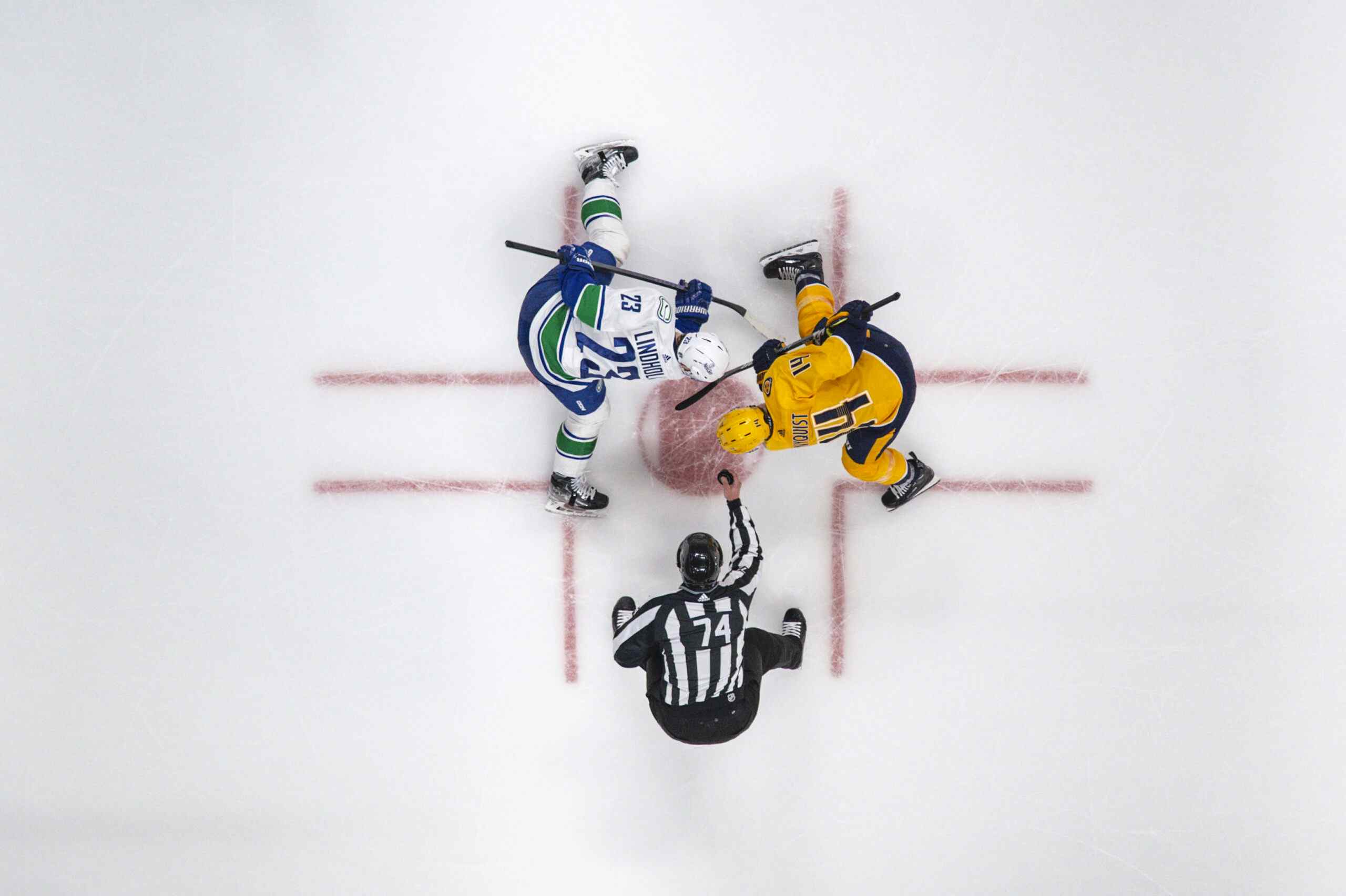The Elephant in the Room
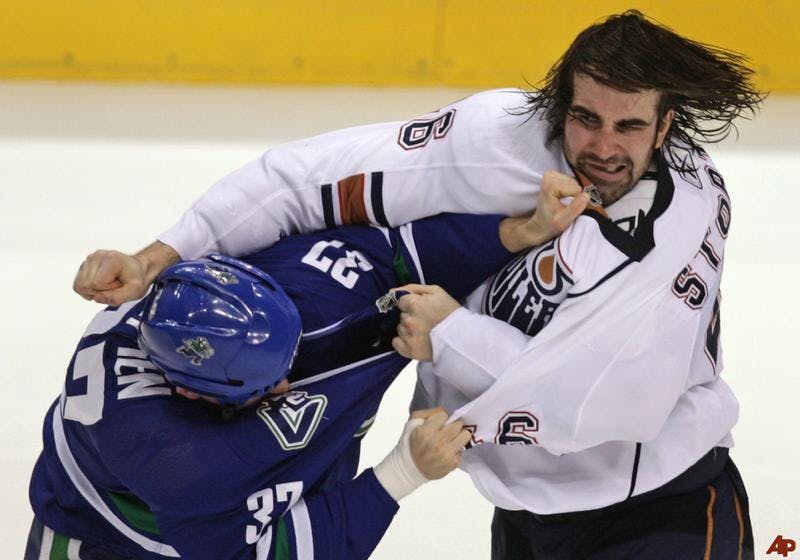
Editors Note: One of the smartest Canucks bloggers around – before he became somewhat of a lapsed Canucks blogger – was Trevor Presiloski. I’ve bothered him for months to contribute a post to Canucksarmy – so when I saw him appear in my DMs yesterday evening I was overjoyed. The following post is his work:
By Trevor Presiloski
So this offseason has been quite a downer.
Both Derek Boogaard and Rick Rypien passed away this offseason and both were noted NHL ‘tough guys.’ Boogaard, also known for making Bruce Boudreau look like a gobsmacked idiot, passed away as a result of alcohol and oxycodone overdosage. Charges are being filed against his brother Aaron for the role he played in his death and the whole situation is coming across as being incredibly ugly for all those involved, and for the sport in general. Prior to his death, Boogaard was also enrolled in the NHL substance abuse/mental health program. The incident paints a very dark portrait of what now seems to be a troubled man.
Unfortunately, there are a lot of similarities between Boogaard’s and Rypien’s deaths. Rypien, who took two lengthy sabbaticals while with the Canuck, seemed to be plagued with personal demons of his own, and they caught up with him on Monday. Sadly all signs seem to indicate suicide.
Already there has been talk going on regarding the nature of fighting in hockey. There have been comparisons made to therecent deaths and Bob Probert’s brain, Probert himself being someone who partook in years of substance abuse, fighting and physical hockey. On an unrelated note, nothing has really been said about Raitis Ivanans, who missed 81 games last year due to a concussion sustained in a fight, and who has only recently been cleared for light workouts. There’s also the case of Reggie Fleming, another former bruiser who also was diagnosed with chronic traumatic encephalopathy.
Given the skillset and the relatively short period in between the death of both of these players, the fighting discussion is going to rear its head again. While I think that this is an important debate, and deals with the future health of players, I don’t think that it is fair or accurate to dismiss Rypien’s death as being the consequences of fighting.
There is still a lot to be learned about concussions and how they affect brain physiology. Fighting is clearly a contributing factor – but when you’re dealing with hockey, a physical sport that involves a lot of contact (bodychecks, primarily), athletes who are predisposed to certain neurological conditions (susceptibility to depression or degenerative conditions such as Alzheimer’s) and factor in other variables such as substance abuse (alcohol and oxycodone are known to cause damage to brain cells and can aggravate certain kinds of dementia, while cocaine abuse can contribute to brain problems) – I find it hard to believe that fighting is the only thing that should be discussed. There is a lot to be learned, and simply saying ‘Ban fighting’ is a simplistic knee-jerk reaction.
And to be honest? I’m really not interested in participating in the debate that will plague the hockey world for the next couple of weeks. Not because I think it’s unimportant, but because I think there are other issues at hand here that need to be talked about.
I hate to have to keep using the word ‘unfortunately’, but this summer isn’t the first time so many players have died in such a relative short timespan under tragic cirumstances. 2002-03 saw several players also take their lives. Jordin Tootoo’s brother Terence committed suicide in the wake of drunk driving charges. Tootoo has also enrolled in the NHL substance abuse program and, being 5’9, wasn’t exactly the Predator’s go to enforcer. 2003 also saw Trevor Ettinger and Roman Lyashenko kill themselves. Ettinger was another enforceer, 6’5 and weighing 225 pounds, with a ton of PIMs on his career stats. Lyashenko was a Russian player, more known for being a defensive forward with skill rather than his pugilistic abilities.
There was also the death of Tom Cavangh earlier this year. Cavanagh was a prospect of the Sharks organization, who committed suicide after a long battle with schizophrenia, a battle that very few people knew about. Cavangh’s battle was so private that not even players who were rooming with him ever knew that he suffered from any serious problems.
There are other well known tragic cases in the NHL. Bryan Fogarty being the most obvious of them all. Fogarty was an incredibly talented defenseman who was drafted by the Quebec Nordiques. He smashed Bobby Orr’s record for goals by a defenseman with 38 along with 155 points. Unfortunately, Fogarty was plagued with insecurity issues as well as substance abuse issues and he was never able to realize his potential. Bouncing around the minors, he eventually died of an enlarged heart at the age of 32.
There’s also Theo Fleury’s much publicized battles with depression and substance abuse, as well as the troubled life of Mike Danton.
Not all of these players were or are goons or enforcers and it is unfair to simplistically chalk up Rypien’s death or Boogaard’s overdose as resulting from the ‘enforcer lifestyle.’ Already, I have read people be incredibly dismissive of Rypien. Some lazy reporting from the Toronto Star included a fake quotation from Mike Gillis that called Rypien ‘crazy’, highlighting how low of an opinion people have of mental illness and those suffering of the same. That he was ‘just’ an enforcer or ‘crazy’ and therefore his problems make sense is insulting
But he was ‘just’ an enforcer and therefore his problems "make sense". Earlier, when he took his two leaves of absence from the Canucks, speculation was rampant that it was related to substance abuse…
Rypien wasn’t simply an enforcer, though. He was a teammate, a hard worker and someone who gave it his all. He saw periodic time on the penalty kill and was involved in several off-ice initiatives to boot. Blaming his death on his having been an NHL enforcer is to be dismissive of the very real problems that these players, and many people around the world, go through. It distances the very real issue of mental health and relegates it to the background.
Why is this such a common reaction to the news? Because people are very uncomfortable talking about it and dealing with it. There is a huge stigma in our society regarding mental health issues. People are often told to just ‘snap out of it’ or are viewed as being attention seekers or drama whores. Men are especially prone to being ashamed and embarassed of these situations, it’s seen as emasculating, as if guys shouldn’t be ‘talking about their feelings.’ I would imagine that these attitudes are compounded a hundred times over in the ‘macho’ world of professional sports, especially in the world of hockey, where players are praised for ‘battling through’ debilitating physical injuries.
One has to wonder why Cavanagh kept such a tight lid on his schizophrenia, or why it took so long for Fleury to open up about his personal problems, or why Fogarty tried to self-medicate his problems with alcohol.
Or why Rypien had such great reluctance to take medication that was prescribed for him. Or why it took Rypien so long to become comfortable talking about his own personal issues. Dan Murphy, in a touching article, noted that Rypien had asked him for help in telling his story. He notes that the Canucks kept a tight lid on what precisely Rypien was going through because he wasn’t ready to talk about it himself. Today, though, we now know that Rypien had been battling depression for a decade and he seemed to have more than his fair share of personal tragedy, such as his girlfriend dying en route to see him play when he was in junior.
The Canucks did well by offering Rypien the support he needed, and it clearly wasn’t the public’s business. We didn’t have a right to know what exactly was going on in his life. But the fact that Rypien was incredibly quiet about his problems seems to indicate a reluctance in talking about his depression, which to me is incredibly heartbreaking.
There needs to be a better dialogue regarding mental health issues in our society. Dismissing these most recent tragedies as being part of ‘goon culture’ or the effects of fighting does a disservice to people like Tom Cavangh, who had nothing to do with ‘goon culture’. It also does a disservice to Rick Rypien, whose problems extended far beyond fighting
This was a guest article written by Trevor Presiloski, you can follow him on twitter here.
Recent articles from Thomas Drance

